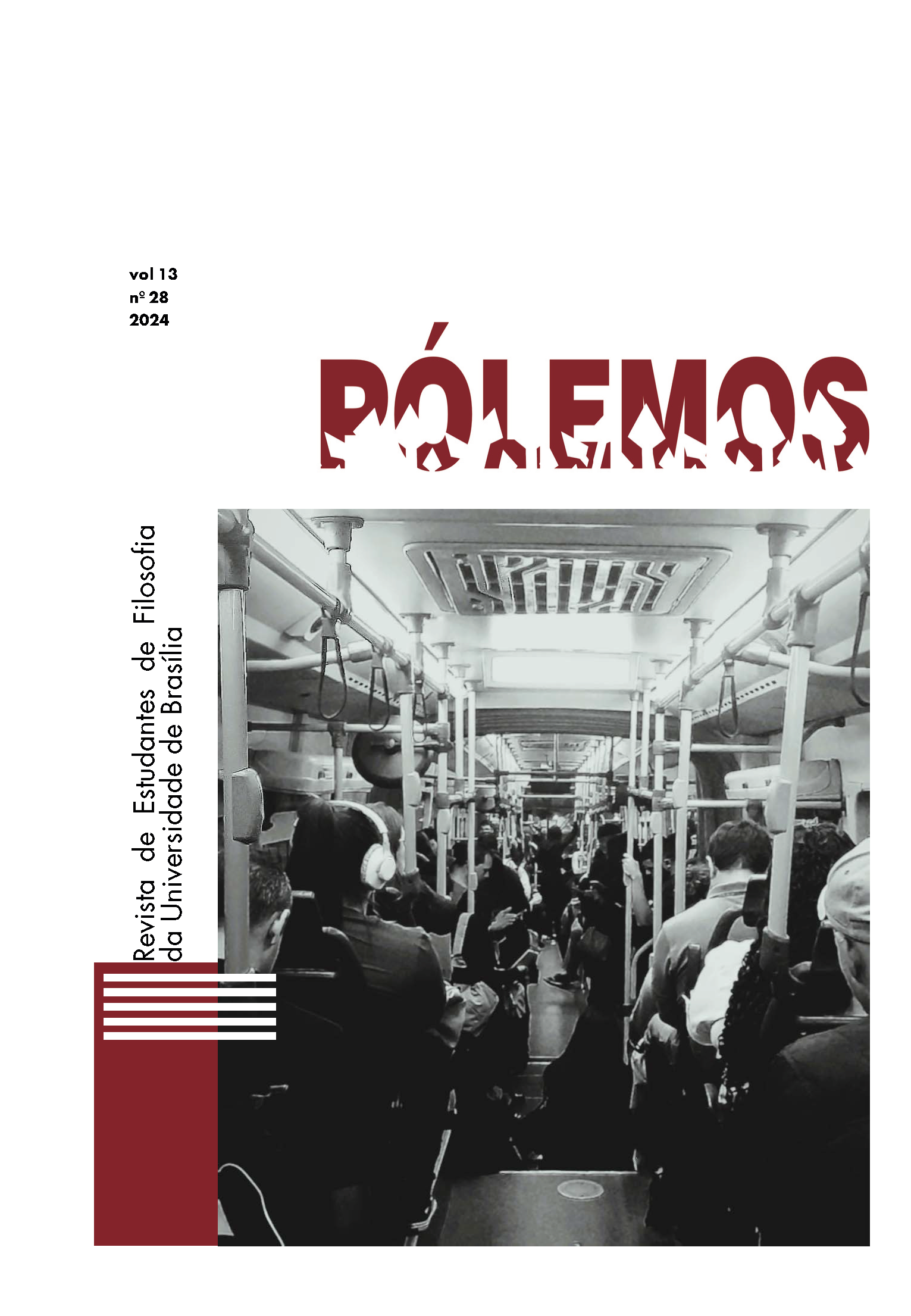ANCHORING MEANING-THEORIES AGAINST TRUTH-CENTERED MEANING THEORIES
a defense of Dummett against Davidson’s Program
DOI:
https://doi.org/10.26512/pl.v13i28.53848Keywords:
Truth-conditional semantics. Meaning-theory. Inferentialism. Meaning foundationalism.Abstract
Micheal Dummett, in 1991(1993), proposed a defense against a meaning-theory based on truth, using inspiration from proof-theories, intuitionism, and a anti-realistic epistemic conception. He argued that truth-based approaches fail to account for inferential phenomena that are not classically formalized. He emphasizes the need to avoid blindly assuming fixed success parameters based on inductive generation of meaning through the concept of "truth". Instead, Dummett suggests that the relationship between truth and meaning should prioritize the theoretical conception of meaning as the mediating element for anchoring successful assertion strategies. In this article, we utilize Dummett's theory to present a framework that challenges Davidson's theory. We argue that Davidson's theory only holds scientific-linguistic value in idealized optimal conditions, where the interpreter's problem is already circumscribed by a non-problematic representation of truth. This framework excludes situations where the truth parameter itself becomes problematic, such as conflicts between translation hypotheses or disagreements between scientific paradigms.
Downloads
References
BAGHRAMIAN, M. Davidson and Indeterminacy of Meaning. The Paideia Archive: Twentieth World Congress of Philosophy, v. 32, p. 1-7, 1998. DOI: https://doi.org/10.5840/wcp20-paideia199832530.
BODDY, R.; MAY, R. Frege On Reference. In: BIGGS, Stephen; GEIRSSON, Heimir (org.). The Routledge Handbook of Linguistic Reference. New York: Routledge, 2020, pp. 30-40. DOI: https://doi.org/10.4324/9781003111894-4.
BUTCHVAROV, P. On reference and sense. Journal of Philosophy, v. 79, n. 10, p. 551-553, 1982. DOI: https://doi.org/10.1515/9780748680801-073.
DAVIDSON, D. A coherence theory of truth and knowledge. In: LEPORE, E. (Ed.). Truth and Interpretation: Perspectives on the Philosophy of Donald Davidson. Oxford: Blackwell, 1986, pp. 307-319. DOI: https://doi.org/10.1093/0198237537.003.0010.
DAVIDSON, D. Inquiries into Truth and Interpretation. Oxford: Clarendon Press, 2001. DOI: https://doi.org/10.1093/0199246297.001.0001.
DUMMETT, M. The Logical Basis of Metaphysics. Cambridge: Harvard University Press, 1993. DOI: https://doi.org/10.5860/choice.29-1468.
DUMMETT, M. The Seas of Language. Oxford: Oxford University Press, 1996. DOI: https://doi.org/10.1093/0198236212.001.0001.
DUMMETT, M. Truth. Proceedings of the Aristotelian Society, v. 59, n. 1, p. 141-162, 1959. DOI: https://doi.org/10.1017/cbo9781139856003.004.
GAUDET, E. Quine's notion of fact of the matter. Dialectica, v. 60, n. 2, p. 181-193, 2006. DOI: https://doi.org/10.1111/j.1746-8361.2005.01049.x.
GENTZEN, G. Collected papers. Journal of Neurology, Neurosurgery & Psychiatry, v. s1-6, n. 23, p. 258-260, 1925. DOI: https://doi.org/10.1136/jnnp.s1-6.23.258.
KUHN, T. S. The Structure of Scientific Revolutions. 2. ed. Chicago: University of Chicago Press, 1970. DOI: 10.2307/2090620.
MOHAMMAD ALI, S. N. Breaking out of the Gricean vicious cycle: Let's divorce semantics and just agree that there is no meaning in language. International Journal of Language Studies, v. 16, n. 3, p. 33-60, 2022. DOI: https://doi.org/10.5281/zenodo.7514602.
MURZI, J. Classical Harmony and Separability. Erkenntnis, v. 85, n. 2, p. 391-415, 2020. DOI: https://doi.org/10.1007/s10670-018-0032-6.
POPPER, K. The Logic of Scientific Discovery. New York: Basic Books, 1959.
PRAWITZ, D. Classical versus intuitionistic logic: Why is this a proof? London: College Publications, 2015, pp. 15-32.
QUINE, W. V. O. Epistemology Naturalized. In: QUINE, W. V. O. Ontological Relativity and Other Essays. New York: Columbia University Press, 1969, pp. 69-90.
QUINE, W. V. O. Ontological Relativity and Other Essays. New York: Columbia University Press, 1969.
QUINE, W. V. O. Word and Object. Cambridge: M.I.T. Press, 1960.
SHANI, I. Intension and Representation: Quine's Indeterminacy Thesis Revisited. Philosophical Psychology, v. 18, n. 4, p. 399-418, 2005. DOI: https://doi.org/10.1080/09515080500229878.
TARSKI, A. Truth and proof. Scientific American, v. 220, n. 6, p. 63-77, 1969. DOI: https://doi.org/10.1038/scientificamerican0669-63.
TENNANT, N. Inferentialism, logicism, harmony, and a counterpoint. In: MILLER, A. (Ed.). Essays for Crispin Wright: Logic, Language and Mathematics. Oxford: Oxford University Press, 2008. DOI: https://doi.org/10.1093/oso/9780199278343.003.0009.
WILSON, D. Presuppositions and Non-Truth-Conditional Semantics. London: Academic Press, 1975. DOI: https://doi.org/10.1111/j.1468-0149.1977.tb01710.x.
WITTGENSTEIN, L. Philosophical Investigations. New York: Macmillan, 1953.
Downloads
Published
Issue
Section
License
Copyright (c) 2024 PÓLEMOS – Revista de Estudantes de Filosofia da Universidade de Brasília

This work is licensed under a Creative Commons Attribution-NonCommercial-NoDerivatives 4.0 International License.
Todos os trabalhos que forem aceitos para publicação, após o devido processo avaliativo, serão publicados sob uma licença Creative Commons, na modalidade Attribution-NonCommercial-NoDerivatives 4.0 International Public License (CC BY-NC-ND 4.0). Esta licença permite que qualquer pessoa copie e distribua a obra total e derivadas criadas a partir dela, desde que seja dado crédito (atribuição) ao autor / Ã autora / aos autores / às autoras.


